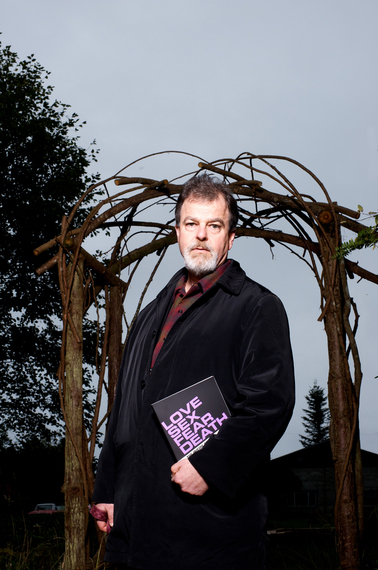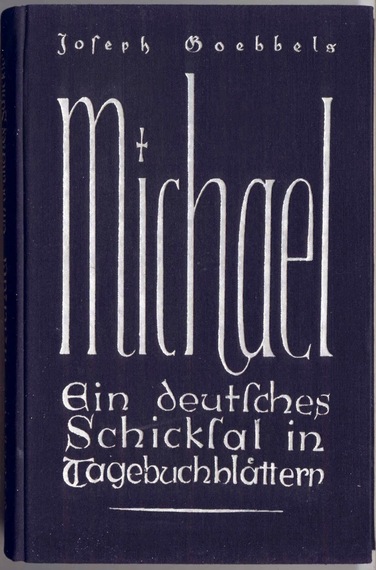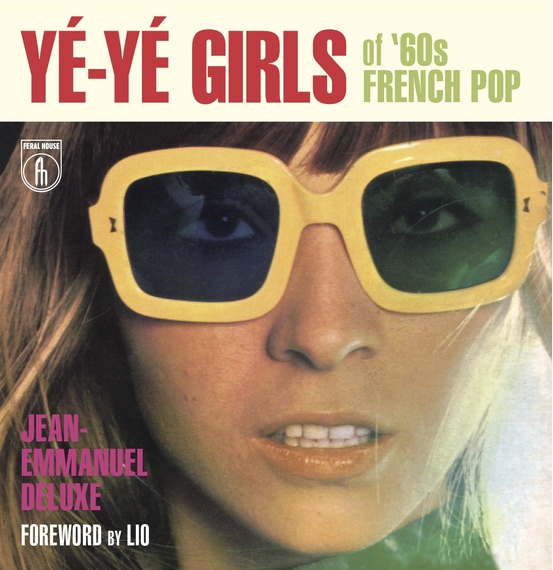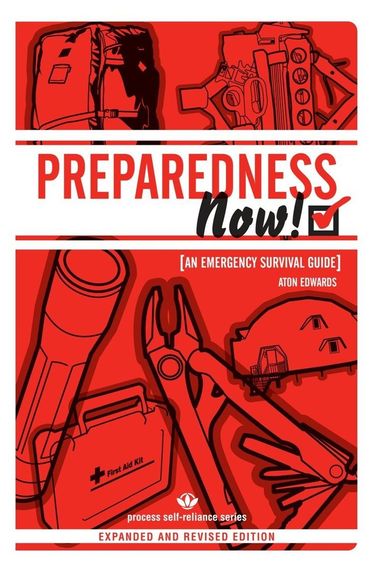
Publisher Adam Parfrey was in town a few weeks ago for the Brooklyn Book Festival. I caught up with Adam at his hotel room to discuss the history of his publishing imprints Feral House and Process Media as well as several other things.
Since the 1990's Feral House has always been one of my favorite book publishers due to my active interest in the occult, forbidden sex, political corruption, macabre photographs, drugs, obscure music cultures and buried truths among other unclassifiable subjects. Parfrey has always had his eye on the next hidden story.
This is part one of a two part interview for Huffington Post.
MLN: So, what was the first spark to start publishing? Was it Amok Press?
AP: Yeah, somewhat. There was a magazine I did before that, that went through a professional printing job. It was called Exit Magazine and it was a graphic magazine, and it was sort of like, at that point, I think, it was '82 or '83. The only existing thing in that way was the serial art thing and other aspects was Raw Magazine and it was big at that time. And they had a particular format, used particular people. They were great, but there were other things that we thought that we would do, just that would cause a fuss just by the type of artists there were and the format, things we would put in that magazine and it was a little unseemly. So, we had fun with that, but then that could only go so far, so I wanted to do other things. So, there was a friend in LA that had a thing called the Amok Catalog. His name was Ken Swezey, and they had a small store in the Silver Lake area - a bookstore, and they had these magazines or journals, more or less, telling you what you could buy by mailing in a check and getting these books. So, I was assigned to write about Nietzsche and Celine and other writers I was fond of. So, they're just Amok catalogs, per se. Then I was able to speak to Ken. I was living in New York at the time, he was living in LA and he had a graphic art place to do half-tones, line drawing things.
MLN: You had to photograph them. That would turn into a plate for printing.
AP: Yeah, and they had a little dot patterns in them so they reproduce. Okay. So, that's what Ken Swezey was doing. That was his business and he was part of this Amok thing. And so I said, "Why don't we do a company doing all these things?" I talked him into doing a publishing business, basically. And the first book we did was a novel by Joseph Goebbels, and it was funny because I read about it in some history book. "Well, that's a famous name! It will get some reaction."
MLN: That's a built-in audience. I didn't know Goebbels had ever written a book, a novel?
AP: Yeah, he was a very art-oriented figure and literature-oriented, too. And I mean, it was interesting, more or less, in the way it spoke of what he was interested in and early forms of Nazism. It was a pro-Russia book, by the way, pro-worker book, and that was the format, so that was very unusual. We were spoken to about that kind of thing. And then we put that book out. It was called Michael. It was a novel under the Amok Press imprint. So, that book got a review - a favorable one - in The New York Times. Because one of the things was to get it translated, we got this very well-known, well-respected translator. His name is Joachim Neugroschel, so that seemed to convince The New York Times that it was a proper book. So, that was kind of funny. So, the first book we ever put out was Goebbels', that the newspaper at the time verified as a wonderful thing to do, and that was interesting. No other book until like, 30 years later, or 25 years later got favorable write-up in the New York Times.
MLN: Alright. That's an auspicious start. So that was the first book on Amok Press. I know we're covering a lot of years. So then, when did you leave and start Feral House?
AP: Well, I moved out to the west coast, Portland first, and then moved down to LA soon after, and Ken had moved to New York. It could've worked out, but there was some issues, too, going on with Ken and his brother with the Amok Catalog and then it was like, there's this in-fighting going on. So I thought, "Why don't we do our own thing now?? So we had done about 8 or 9 books under the Amok Press imprint and then it made sense to go our own routes at that time and that's what happened. So, it was a very friendly situation. It wasn't a problem. So Amok Press officially started in 1989 and that's when I applied for corporate paperwork and all that stuff, as an actual business thing. So, the first book with Amok Press, I think, was an Anton LaVey title. The thing is, I didn't have much money, but I needed a book that would sell, wasn't that costly to produce, and you have to figure out ways of making it work. At that time, I was mainly employed by magazines like Penthouse publications and Hustler and I wrote articles, and that was my living.
MLN: At that time you put out Anton LaVey's book, you were kinda plugged into that social group, right? Like, didn't you date Zeena (LaVey)?
AP: Yeah, for a bit I was going out with Zeena. She came over to my apartment in Echo Park with a bottle of vodka. That's when I first met her, which was nice because she was a good-looking girl bringing me vodka. It was nice.
MLN: Yeah, Anton LaVey. How interesting. But there was like a whole group, right? It was like you and Boyd Rice and all these people used to hang around.
AP: Boyd Rice, he was a friend who did things for the Exit Magazine at one point. And, Boyd was very important because Boyd even suggested the name "Feral House." Because I was searching for names at that time and I asked him his ideas. So he's the guy who came up with it.
MLN: Why do you think it's lasted so long when other imprints have folded?
AP: I think people have different expectations and different thoughts about what it would take to do a company like that. I supported it personally. Not many people do that. There are investors, maybe, and other people are in on the game and it's not your thing anymore. And then you're trying to make a bunch of money and that's never been in my mind. I'm in it to make money - it's the wrong business for that. And a lot of the books we put out, you have to get a distributor and that point, the first distributor we had was called Publishers Group West, and it basically supported smaller publishers at the time when there wasn't much in the way of book distribution and a lot of it was - the whole publishing game - was run by about 7 or 8 different, large companies in New York City. I was not in New York City. I was not a big publisher per se, so I had to figure out a way to get orders by the chain stores like Barnes and Noble and Borders. Was Tower going then? I'm not sure, but later they were. It's a business. I had to figure out a way to do things that they would know they couldn't really distribute much and they would always tell me that, too. I'd come in with these fucking weird books that would get them weird looks when they'd go into a store and try to pitch it, and so I was kind of like, at this time, they know that part of the game, that's what it is. But, not only about a year ago, a rep from a current distributor consorting was saying, "I don't know how you do it, Adam! People want to throw me out of the store if I pitch any of your books. How does any of it sell?" So, even now, I get that kind of thing.
MLN: Which is weird. You'd think by now, the world would have acclimated to all kinds of ideas, but no. There's still a lot of moralists running the show.
AP: What it is, is that they don't want to upset the nice mothers who bring in their children to the stores and these bookstores are about as difficult as a Starbucks outlet, but that's what it is. They're trying to serve a type of person who just - they don't want to hear about anything except the Top 10, Top 40, what's on NPR that morning, that's it.
MLN: What sort of stories tend to turn into Feral House books, generally? Or is there a "generally?"
AP: I'm not sure because we have a kind of more eclectic, wide array of topics. We don't do fiction, so that's out of it. Poetry, we don't do. We don't do books with short stories. That's out of the question. That focuses me a bit and then non-fiction stuff that people have presented me, or I've seen or want to happen. I was interested in the Ye'-Ye' Girl thing for a long time, but finally I found a way of having it made as a book.
MLN: So it will take an interest. It will take kinda like years to hang around your mind until the right opportunity comes up for it to be a book, right? Like, the way any artist really works. In my case, I'll have a film hang around until the time is right.
AP: Yeah, it happens like that way a number of times, not always. There are people who present things to me I think are good ideas or that I'd like to see developed into a book because it seems interesting enough, then I want to see the result of that. And sometimes that works; sometimes it doesn't for people to follow through with enough interest and enough vigor to turn this idea into a product, like a book. Sometimes it's really frustrating and difficult for people to do. And also people have strange ideas. They still think that, "If I write a book, that I should make a million dollars." They don't know the dynamics of the reality of the commerce factor of it. So, that gets difficult sometimes. It's interesting.
MLN: What is Process Media?
AP: That started when my wife, Jodi Wille - we're no longer married - I've always wanted to do, I mean Feral House seems to have some sort of reputation of being hardcore, dark. And then that has benefitted me to some extent, but other ways, not. Because people say "oh, we can't touch that. We can't go there." I'm not necessarily interested alone in that kind of stuff. So, Process was begun to have an outlet for books that were not dismissed as being Feral-like. And that was part of the distribution problem - the problem with authors who wanted to do books that weren't necessarily pigeonholed in a certain way. And I wanted to have something for Jodi to work on when we were together, so that's what happened when Process started. It's still an on-going thing. Sometimes it's difficult to find the breakdown on what's a Process book and what's a Feral House book.
MLN: Because they seem - they're very different. I mean, they're not fiction books, much like Feral House, that I can tell. They seem to be about the Earth and survival.
AP: Well, we did like a self-reliance series and that became a series that we're trying to fit into something that is not like some weird, fucked up gun hoarder situation where you're talking about problems or farming, this and that. So, I want to provide it that was also, in a way, more a little more bourgeois-friendly in a way, because there was illustrations, simple text that was understandable. So, these ideas that were, in the past mainly provided by gun nuts, and other people of that nature, now has been manifested in a way that anybody down the street could understand and appreciate.
MLN: Right, it takes the crazy out. It takes the crazy out of -
AP: Yeah, but we put the crazy in Feral House and took the crazy out of Process.
MLN: [laughs] It's a different kind of crazy. It's like, what kind of crazy can you live with?
AP: [laughs] Yeah, so that was the idea. It's expanding a little what Process is, working with this professor, or ex-professor named Ron Siegel on bizarre, old drug literature - things like that, and things he discovered that he found worthwhile as a book, so I'm working with him on a few things. And so, it just becomes a way to manifest these interesting ideas that can't find an outlet in other ways.
End of Part One.



